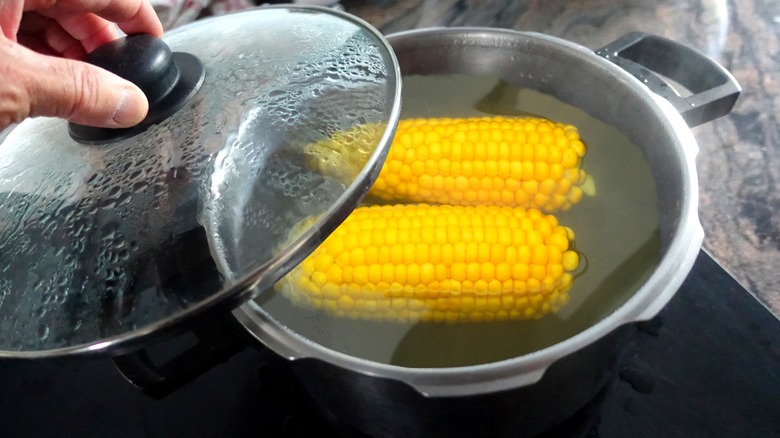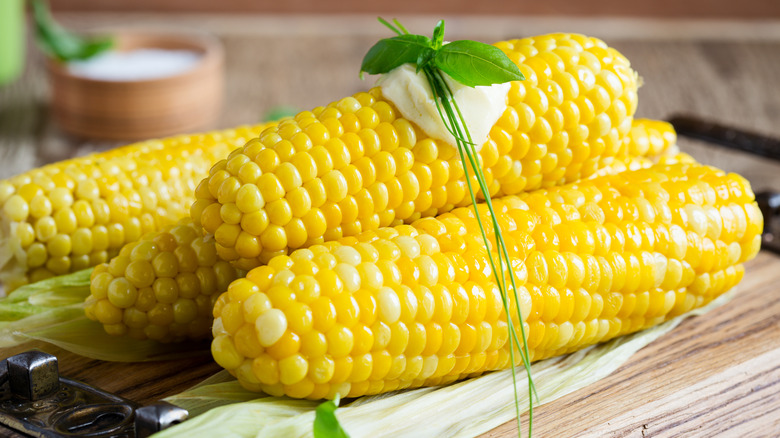Add 2 Unexpected Additions To The Water For Next-Level Corn On The Cob
On the list of simple kitchen tasks that can be surprisingly frustrating, boiling perfect corn is up there with poaching eggs and peeling garlic. If your cobs never turn out as sweet and juicy as you like, it might be because you're cooking them in plain water. Try adding sugar and lemon juice to the pot, and you'll wind up with far more flavorful results.
Cooks who don't like to mess with their corn might be shaking their heads, but these additions subtly enhance the veggie's natural flavor without masking it, in addition to improving its texture. Even if you pay attention to signs to look out for when buying corn on the cob, chances are your corn has lost some of its sweetness since it was picked. A little sugar makes up for this without adding distracting flavors. Meanwhile, the lemon juice adds just a touch of sweetness and acidity, and helps the kernels stay firm and crisp instead of turning mushy.
To boil six corn cobs in a large pot of water, add 1 tablespoon of lemon juice and 2 tablespoons of sugar. Slightly reduce or increase these amounts when cooking more or fewer cobs. Whether you're making simple buttered corn or a crispy and creamy corn fritters recipe, this trick will give you the perfect juicy, tasty results.
Additional ingredients and tips for the best boiled corn
In addition to sugar and lemon, adding butter to boiling water is a game-changer for corn, as it saturates the veggie with a rich flavor and makes it a tad softer for those who like it less firm. Pouring a cup of whole milk into the water enhances this effect, but leave the lemon out in this case, as the acidic juice easily curdles milk. If you avoid animal products, boil corn in coconut milk to give it a buttery, sweet taste instead.
Of course, fancying up the water isn't going to do much if you don't cook corn properly in the first place. Undercooking is definitely a concern, but if you boil corn on the cob for too long, the texture turns rubbery and hard. There's a technique that eliminates most of the risk: Turn off the stove as soon as you put the cobs in the boiling water. Letting them sit instead of actively boiling them is way more gentle and gives you some wiggle room for doneness. Your corn will probably be perfect after 10 minutes, but if you wind up keeping it in the pot for longer, it's still unlikely to overcook.
Once your cobs are perfectly done, let them cool on a plate instead of running them under water. This water mistake that causes soggy corn on the cob will ruin your hard work at the last second, so be patient — the wait will totally be worth it.

